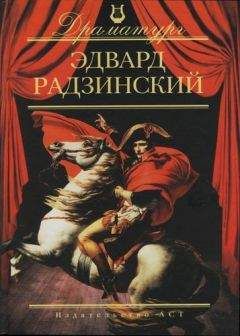Илья Франк - Английский язык с Р.Л. Стивенсоном. Остров сокровищ
weather-eye — бдительность) and let him know the moment he appeared (дам
ему знать о моменте, когда он появится). Often enough (часто довольно =
всякий раз), when the first of the month came round (когда первое число месяца
наступало), and I applied to him for my wage (обращался к нему за моим
жалованьем), he would only blow through his nose at me (он лишь трубил
/свистел/ носом на меня), and stare me down (смущал меня взглядом =
свирепо глядел); but before the week was out (но прежде, чем неделя
заканчивалась) he was sure to think better of it (он менял мнение об этом =
передумывал), bring me my fourpenny piece (приносил мне четырехпенсовую
монету), and repeat his orders to look out for 'the seafaring man with one leg (и
повторял приказания высматривать «моряка с одной ногой»).'
Мультиязыковой проект Ильи Франка www.franklang.ru
11
alarms [q`lRmz] seafaring [`sJfeqrIN] enough [I`nAf] wage [weIG] stare [steq]
1. For me, at least, there was no secret about the matter; for I was, in a way, a
sharer in his alarms. He had taken me aside one day, and promised me a
silver fourpenny on the first of every month if I would only keep my 'weather-
eye open for a seafaring man with one leg,' and let him know the moment he
appeared. Often enough, when the first of the month came round, and I
applied to him for my wage, he would only blow through his nose at me, and
stare me down; but before the week was out he was sure to think better of it,
bring me my fourpenny piece, and repeat his orders to look out for 'the
seafaring man with one leg.'
1. How that personage haunted my dreams (как эта персона преследовала мои
сны = часто снилась мне; to haunt — часто заезжать проведать, навещать;
неотступно преследовать; мучить; не давать покоя /о мыслях и т. п./), I
need scarcely tell you (мне нужно едва ли рассказывать вам). On stormy nights
(бурными ночами), when the wind shook the four corners of the house (когда
ветер сотрясал четыре угла дома = весь дом), and the surf roared along the cove
and up the cliffs (и прибой ревел в бухте и в утесах: «вдоль бухты и вверх по
утесам»), I would see him in a thousand forms (я видел его /во сне/ в тысяче
образов), and with a thousand diabolical expressions (с тысячью дьявольских
выражений = обликов). Now the leg would be cut off at the knee (то нога была
отрезана по колено), now at the hip (то по бедро; now… now… — то… то…);
now he was a monstrous kind of a creature (то он был чудовищным видом
существа) who had never had but the one leg (которое никогда не имело
/ничего/, кроме одной ноги), and that in the middle of his body (/да/ и ту в
середине тела). To see him leap and run and pursue me (видеть его = как он
прыгал и бежал, и преследовал меня) over hedge and ditch (не разбирая
Мультиязыковой проект Ильи Франка www.franklang.ru
12
дороги: «через изгородь и канаву») was the worst of nightmares (было худшим
из ночных кошмаров). And altogether I paid pretty dear for my monthly
fourpenny piece (в общем, я платил довольно дорого за месячную
четырехпенсовую монету), in the shape of these abominable fancies (в виде этих
отвратительных фантазий).
personage [`pq:sqnIG] haunted [`hLntId] knee [nJ] hedge [heG] nightmares
[`naItmeq]
1. How that personage haunted my dreams, I need scarcely tell you. On
stormy nights, when the wind shook the four corners of the house, and the
surf roared along the cove and up the cliffs, I would see him in a thousand
forms, and with a thousand diabolical expressions. Now the leg would be cut
off at the knee, now at the hip; now he was a monstrous kind of a creature
who had never had but the one leg, and that in the middle of his body. To see
him leap and run and pursue me over hedge and ditch was the worst of
nightmares. And altogether I paid pretty dear for my monthly fourpenny
piece, in the shape of these abominable fancies.
1. But though I was so terrified by the idea of the seafaring man with one leg (хотя
я был так напуган мыслью о моряке с одной ногой), I was far less afraid of the
captain himself (я гораздо меньше боялся самого капитана) than anybody else
who knew him (чем кто-либо другой, кто знал его). There were nights when he
took a deal more rum and water (были ночи, когда он выпивал больше рому с
водой; to take — взять, употребить; deal — некоторое количество) than his
head would carry (чем его голова могла вынести); and then he would sometimes
sit and sing (и затем иногда сидел и пел) his wicked, old, wild sea-songs,
Мультиязыковой проект Ильи Франка www.franklang.ru
13
minding nobody (свои нечестивые, старые, дикие морские песни, не обращая
ни на кого внимания; wicked — злой); but sometimes he would call for glasses
round (но иногда требовал стаканов /рому/ для всех; round — порция), and
force all the trembling company to listen to his stories (и заставлял всю
дрожавшую компанию слушать его истории) or bear a chorus to his singing
(или поддерживать припев, подпевать его пению: «нести хор к его пению»).
Often I have heard the house shaking with (часто я слышал, как дом трясся от
/песни/) 'Yo-ho-ho, and a bottle of rum;' all the neighbours joining in for dear life
(все соседи подхватывали /пение/ изо всех сил: «ради дорогой жизни»; to join
in — подхватить, присоединиться), with the fear of death upon them (с
боязнью смерти «на них»), and each singing louder than the other, to avoid
remark (и каждый пел громче, чем другой, чтобы избежать замечания). For in
these fits (так как в этих припадках) he was the most overriding companion ever
known (он был наиболее важным = грозным собеседником, чем когда-либо
/известный/; overriding — важнейший, доминирующий); he would slap his hand
on the table for silence all round (ударял рукой по столу для тишины вокруг);
he would fly up in a passion of anger at a question (приходил в ярость при
вопросе = когда его спрашивали; to fly up — взлететь, спорхнуть), or
sometimes because none was put (или иногда потому, что никакой /вопрос/ не
был задан), and so he judged the company was not following his story (поэтому
он решал, /что/ компания не следовала его истории = невнимательно
слушала). Nor would he allow anyone to leave the inn (также не позволял он
кому-либо уйти из трактира; to leave — покидать, оставлять) till he had
drunk himself sleepy and reeled off to bed (пока не напивался до дремотного
состояния и ковылял к кровати; sleepy — сонный, вялый; to reel off —
сматывать, разматывать /трос/).
terrified [`terIfaId] wicked [`wIkId] bear [beq] neighbour [`neIbq] overriding
[quvq`raIdIN]
Мультиязыковой проект Ильи Франка www.franklang.ru
14
1. But though I was so terrified by the idea of the seafaring man with one leg,
I was far less afraid of the captain himself than anybody else who knew him.
There were nights when he took a deal more rum and water than his head
would carry; and then he would sometimes sit and sing his wicked, old, wild
sea-songs, minding nobody; but sometimes he would call for glasses round,
and force all the trembling company to listen to his stories or bear a chorus to
his singing. Often I have heard the house shaking with 'Yo-ho-ho, and a bottle
of rum;' all the neighbours joining in for dear life, with the fear of death upon
them, and each singing louder than the other, to avoid remark. For in these
fits he was the most overriding companion ever known; he would slap his
hand on the table for silence all round; he would fly up in a passion of anger
at a question, or sometimes because none was put, and so he judged the
company was not following his story. Nor would he allow anyone to leave the
inn till he had drunk himself sleepy and reeled off to bed.
1. His stories were what frightened people worst of all (его истории были /тем/,
что пугало людей больше всего). Dreadful stories they were (ужасными
историями они были); about hanging (о повешении), and walking the plank (и
хождении по доске /в открытое море/ — вид казни: пираты часто
заставляли несчастных людей на захваченном корабле идти с завязанными
глазами по доске в море), and storms at sea (/о/ штормах на море), and the Dry
Tortugas (об /островах/ Драй Тортугас /группа мелких коралловых островов в
Мексиканском заливе, на юго-западе Флориды/), and wild deeds and places on
the Spanish Main (диких деяниях и местах у испанского материка /в районе
Карибского моря/).
2. By his own account (по его собственному рассказу) he must have lived his life
among some of the wickedest men (он, должно быть, прожил жизнь среди
Мультиязыковой проект Ильи Франка www.franklang.ru
15
/неких/ самых отъявленных людей = злодеев) that God ever allowed upon the
sea (которым Господь когда-либо позволял /плавать/ по морю); and the
language in which he told these stories (язык, которым он рассказывал эти
истории) shocked our plain country people (шокировал наших простых
деревенских людей) almost as much as the crimes that he described (почти так
же, как и преступления, которые он описывал).
frightened [`fraItnd] dreadful [dredful] hanging [`hxNIN] language
[`lxNgwIG]
1. His stories were what frightened people worst of all. Dreadful stories they
were; about hanging, and walking the plank, and storms at sea, and the Dry
Tortugas, and wild deeds and places on the Spanish Main.
2. By his own account he must have lived his life among some of the wickedest
men that God ever allowed upon the sea; and the language in which he told
these stories shocked our plain country people almost as much as the crimes
that he described.




